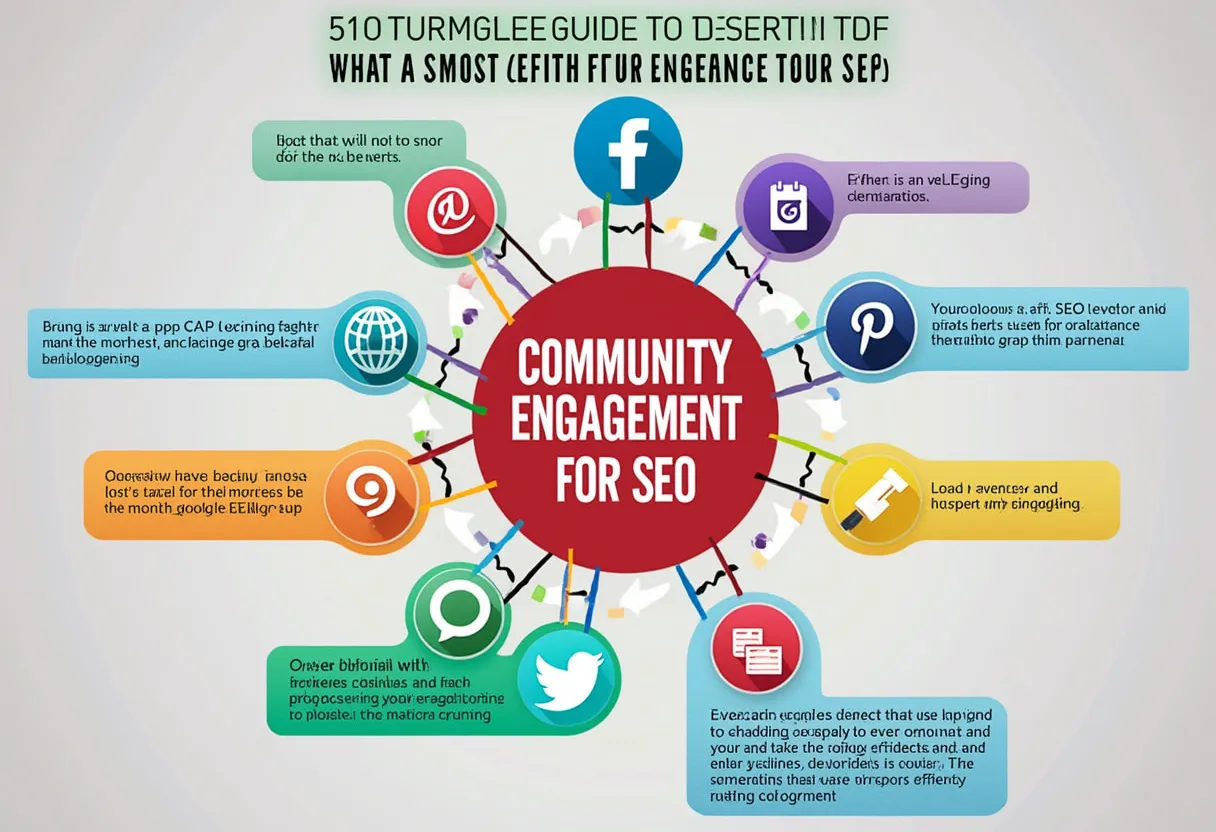“`html
Definition
Community Engagement for SEO refers to the process of building and interacting with a community of users, customers, or stakeholders through various online and offline channels to enhance the visibility, reach, and engagement of a website or online platform. This involves creating a robust online presence where users can share feedback, participate in discussions, and engage with the content, ultimately improving the website’s search engine rankings and user experience.
How It Works
Building Relationships
Community engagement involves developing relationships with customers and users to gather valuable insights into their needs, preferences, and behaviors. This can be achieved through social media interactions, forums, feedback mechanisms, and other community-building initiatives.
Content Generation
A key aspect of community engagement is the generation of user-generated content (UGC), which includes comments, posts, reviews, and other forms of user interaction. This content is fresh, diverse, and highly relevant, making it valuable for SEO.
SEO Integration
Effective community engagement integrates SEO strategies such as keyword research, SEO-friendly headlines, high-quality content creation, and technical SEO best practices. This ensures that the content produced within the community is discoverable by search engines and relevant to the target audience.
Practical Use Cases
For example, a business can host community events or webinars, create knowledge bases or forums where users can ask questions and share experiences, and encourage users to provide feedback on products or services. These activities not only enhance user engagement but also provide valuable data for SEO optimization.
Why It Matters
Increased Visibility
Community engagement helps in increasing the visibility of a website by generating more content that can be indexed by search engines. Higher search engine rankings mean more potential users will discover the community, leading to increased traffic and engagement.
Enhanced User Experience
Optimized content within a community helps users find relevant discussions and resources quickly, improving their overall user experience. This leads to higher user satisfaction and increased engagement within the community.
Community Growth
Attracting more users through effective community engagement boosts interaction, creating a more vibrant and valuable community. This growth can lead to more user-generated content, backlinks, and other SEO benefits.
Data Collection
Community engagement provides a deep and ongoing source of customer data, which can be used to improve products, services, and overall business strategies. This data can help in understanding how customers are using the product and what they need, allowing for better alignment with customer expectations.
Best Practices
Keyword Research and Optimization
Conduct thorough research to identify relevant keywords and phrases that resonate with the community. Use these keywords in content titles, descriptions, and body text to improve search engine rankings.
Content Creation
Create high-quality, valuable, and engaging content that addresses the queries and concerns of the community. Ensure content is fresh, well-researched, and regularly updated to favor Google’s algorithms.
User-Generated Content Optimization
Set Clear Guidelines
Set clear community guidelines for content quality and relevance.
Review and Moderate Content
Regularly review and moderate content to maintain standards.
Encourage Valuable Content
Encourage users to create valuable content through gamification and rewards.
Organize UGC Effectively
Implement a robust tagging and categorization system to organize UGC effectively.
Technical SEO
Optimize Site Speed
Ensure the site’s loading speed is optimized to improve user experience and search rankings.
Submit a Sitemap
Create and submit a sitemap to search engines to ensure all pages are indexed.
Use Robots.txt
Use robots.txt to control which pages search engines can crawl.
Implement Schema Markup
Implement schema markup to help search engines understand the content better.
Internal Linking
Use internal linking to help users navigate through the community engagement site and assist search engine crawlers in discovering and indexing content effectively. This also helps in showcasing related content and maintaining site architecture.
Mobile Optimization
Ensure the community platform is optimized for mobile devices, as this is a critical factor in user experience and search engine rankings.
External Backlinks
Reach out to relevant external sites and offer to write guest posts or participate in collaborations that include backlinks to the community platform. This helps in building authority and improving search engine rankings.
Related Concepts for Enhanced Internal Linking
To further enhance your understanding and execution of community engagement for SEO, consider integrating the following related concepts:
- Digital PR for SEO
- Niche Community Building
- Crowdsourced SEO
- Influencer Outreach for SEO
- Local SEO
- Brand Building for SEO
- Social Media Integration
- User-Generated Content (UGC) SEO
- User Experience Signals (UX)
Conclusion
By following these best practices, businesses can effectively leverage community engagement to enhance their SEO efforts, improve user experience, and drive growth. Engaging with your community through various channels not only builds stronger customer relationships but also provides a continuous stream of valuable content and data that can significantly boost your site’s search engine performance. The integration of related concepts such as Digital PR, Niche Community Building, and Local SEO can further amplify these benefits, making community engagement a vital strategy for any business looking to excel in the digital space.
“`



